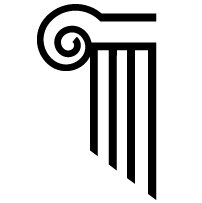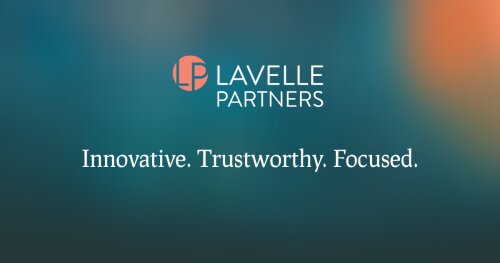Best Creditor Lawyers in Ireland
Share your needs with us, get contacted by law firms.
Free. Takes 2 min.
Or refine your search by selecting a city:
List of the best lawyers in Ireland
About Creditor Law in Ireland
Creditor law in Ireland encompasses the rules and regulations governing the relationship between creditors and debtors. It is designed to ensure fair and just handling of debts, safeguard the rights of creditors, and protect debtors from unfair practices. This field of law is of significant importance due to its impact on financial stability, business operations, and personal financial management. Various statutory and regulatory frameworks, such as the Personal Insolvency Act 2012 and the Credit Reporting Act 2013, influence creditor law in Ireland.
Why You May Need a Lawyer
There are several situations where engaging a lawyer specializing in creditor law may be necessary. Business owners may encounter disputes over unpaid invoices, while individuals might face issues with loan defaults or credit card debts. Legal assistance may also be required in complex matters like personal insolvency arrangements, bankruptcy proceedings, or debt recovery efforts. Furthermore, those dealing with cross-border creditor issues or needing representation in court would greatly benefit from professional legal counsel.
Local Laws Overview
The key aspects of local creditor laws in Ireland primarily involve the regulation of debt recovery procedures, the rights of creditors versus debtors, and measures to avoid excessive indebtedness. The Personal Insolvency Act 2012 offers solutions such as Debt Relief Notice (DRN), Debt Settlement Arrangement (DSA), and Personal Insolvency Arrangement (PIA) to aid financially distressed individuals. Additionally, the Bankruptcy Act 1988, along with its amendments, governs the process of declaring bankruptcy. These laws aim to foster a balanced approach towards managing debts, safeguarding both creditors' interests and debtors' rights.
Frequently Asked Questions
What is the primary legislation governing creditor-debtor relationships in Ireland?
The primary legislation includes the Personal Insolvency Act 2012 and the Bankruptcy Act 1988, which dictate the management and resolution of debts and insolvency proceedings.
How can a creditor recover unpaid debts in Ireland?
Creditors can recover unpaid debts through legal means such as obtaining a judgment in court, pursuing debt enforcement measures, or engaging in negotiations or settlement agreements with debtors.
What is a Debt Relief Notice (DRN)?
A Debt Relief Notice is a statutory mechanism that allows for the write-off of qualifying debts up to €35,000 for individuals with limited financial means, subject to meeting specific eligibility criteria.
Does bankruptcy affect my debts indefinitely?
In Ireland, bankruptcy typically lasts for one year, after which most debts are discharged. However, certain obligations, like child support and court-imposed fines, remain enforceable.
What is a Personal Insolvency Arrangement (PIA)?
A Personal Insolvency Arrangement involves restructuring both secured and unsecured debts to enable debtors to manage repayments over a period while protecting secured assets like homes.
Can creditors contact me at any time to demand payment?
While creditors have the right to contact debtors regarding unpaid debts, they must adhere to fair debt collection practices, avoiding any form of harassment or undue pressure.
What happens if a debtor cannot meet the terms of a Debt Settlement Arrangement (DSA)?
If the terms of a DSA cannot be met, creditors may take alternative actions, including legal proceedings, unless a revised agreement is negotiated between the parties involved.
Are all types of debt included in personal insolvency solutions?
Certain debts like mortgages, secured loans, and preferential debts such as taxes may have specific provisions within personal insolvency solutions and might require distinct handling approaches.
What role does the Insolvency Service of Ireland (ISI) play?
The ISI oversees and administers the insolvency processes, ensuring compliance with legal standards and providing information and support to individuals seeking insolvency solutions.
Are there alternatives to legal proceedings for resolving creditor-debtor disputes?
Yes, parties can engage in mediation or arbitration to reach mutually agreeable solutions and avoid the costs and complexities of lengthy court proceedings.
Additional Resources
For those seeking additional assistance, resources such as the Insolvency Service of Ireland (ISI), Money Advice and Budgeting Service (MABS), and the Competition and Consumer Protection Commission (CCPC) offer valuable guidance and support to individuals dealing with creditor-related issues.
Next Steps
If you require legal assistance concerning creditor matters in Ireland, it's advised to consult with a solicitor who specializes in this area of law. They can provide personalized guidance tailored to your specific situation, ensuring your rights are protected and interests served. You can start by researching reputable law firms, arranging consultations, and discussing your case to determine the best course of action.
Lawzana helps you find the best lawyers and law firms in Ireland through a curated and pre-screened list of qualified legal professionals. Our platform offers rankings and detailed profiles of attorneys and law firms, allowing you to compare based on practice areas, including Creditor, experience, and client feedback.
Each profile includes a description of the firm's areas of practice, client reviews, team members and partners, year of establishment, spoken languages, office locations, contact information, social media presence, and any published articles or resources. Most firms on our platform speak English and are experienced in both local and international legal matters.
Get a quote from top-rated law firms in Ireland — quickly, securely, and without unnecessary hassle.
Disclaimer:
The information provided on this page is for general informational purposes only and does not constitute legal advice. While we strive to ensure the accuracy and relevance of the content, legal information may change over time, and interpretations of the law can vary. You should always consult with a qualified legal professional for advice specific to your situation.
We disclaim all liability for actions taken or not taken based on the content of this page. If you believe any information is incorrect or outdated, please contact us, and we will review and update it where appropriate.
Browse creditor law firms by city in Ireland
Refine your search by selecting a city.















